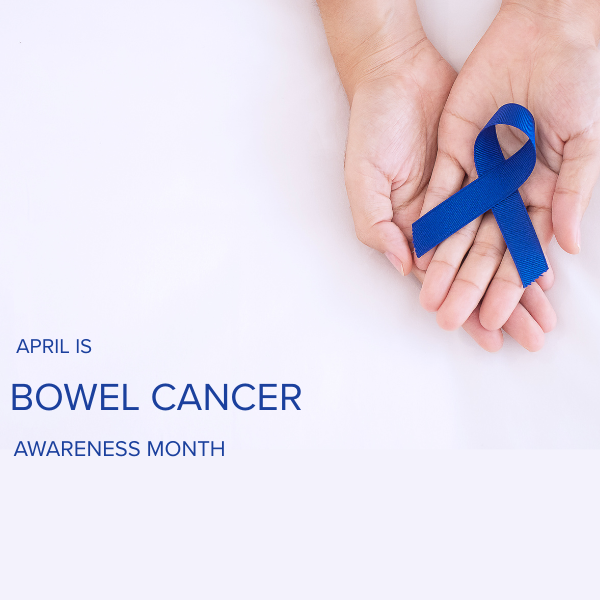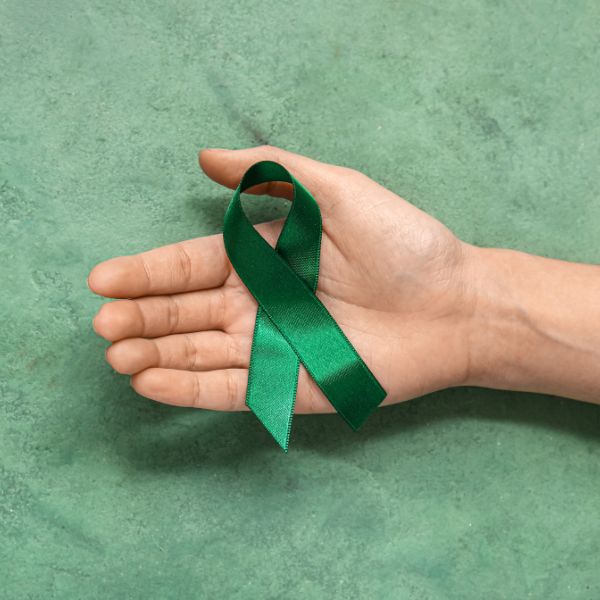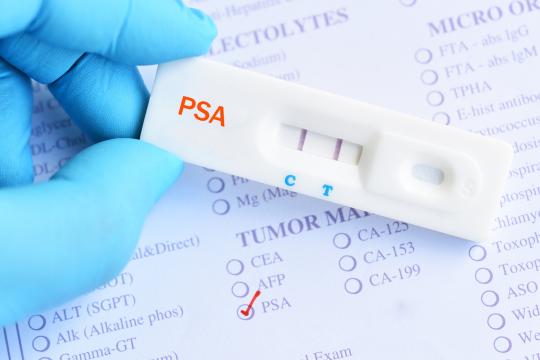Missed Fourth-Degree Tear Caused Devastating Injury to Young Mother
Maternity & Pregnancy Negligence Compensation Claims.
During pregnancy, labour, and postnatally both mother and baby rely on medical staff to provide them with the necessary care to ensure they remain in good health.
When the level of care falls below the expected standard, it can have dire consequences for the mother and baby.
If you have received substandard care during your pregnancy, birth, or postnatally and you have suffered an injury or health condition as a direct result of the hospital’s negligence, you may be able to make a claim for compensation. Here at Lanyon Bowdler we are experienced in handling maternal negligence claims; our friendly and professional team are ready to support you and help you as you regain your health and move forward with your life.
Our Maternity Negligence Expertise
Here at Lanyon Bowdler, we pride ourselves on our empathetic and holistic approach to maternal negligence compensation claims. We understand how difficult it is to rebuild your life after suffering an injury or health condition at the hands of those who are supposed to be caring for you.
We take the time to really get to know you and your family, ensuring we always strive for the outcome which is best for you.
Some of the reasons our clients choose us include:
- Our client-centric approach
- Our transparent and flexible pricing options
- Our supportive and holistic approach
- Our friendly and professional manner
- Our industry accreditations from Chambers UK and The Legal 500
- Our fearsome national reputation in representing families for maternal negligence claims, including representing families in the Donna Ockenden Review and those affected by the Shrewsbury and Telford NHS Trust (“SaTH) maternity scandal
To find out how our people can become your team, please get in touch.
Your Maternity & Pregnancy Negligence questions answered
Medical professionals have a duty of care to ensure they keep you and your baby healthy and safe throughout pregnancy, and they do this by carrying out regular antenatal checks such as ultrasound scans and blood tests.
Failure to carry out the necessary checks could mean that a potential problem is missed or misdiagnosed, causing problems for mother and/or baby further down the line. Maternal negligence can occur when a medical professional fails to diagnose an abnormality during a scan, does not identify an infection during pregnancy, fails to manage the mother’s medication correctly, or does not manage any complications adequately, and can lead to a number of complications for the mother, including:
- Pre-eclampsia – A condition affecting pregnant women with symptoms including hypertension, oedema, frequent urination, and protein in the urine. Left untreated, pre-eclampsia can develop into eclampsia and cause serious health problems.
- Gestational diabetes – Diabetes during pregnancy can cause a number of complications for mother and baby if left unmanaged, including premature birth, large birth weight, late miscarriage, or stillbirth.
- Ectopic pregnancy – This is when a fertilised egg implants outside of the womb, most often in one of the fallopian tubes, and if undetected it can rupture and cause severe internal bleeding for the mother.
- Stillbirth – When a baby dies in utero after 24 weeks gestation it is known as a stillbirth, and in many cases it can be prevented through adequate antenatal screening.
- Wrongful birth – This is the term used when a child is born with a life-limiting congenital disease or abnormality which doctors failed to identify during the pregnancy.
- Uterine rupture – A ruptured uterus occurs when the wall of the womb tears during pregnancy, and if it is not identified and treated promptly it can be life-threatening for both mother and baby.
This list is not exhaustive, and if you have suffered from a health condition as a direct result of medical negligence during your pregnancy, you may be able to claim compensation. Speak to our team of friendly and professional medical negligence solicitors today to find out more.
Many women discuss with their midwife or obstetrician how they would like their birthing experience to go, however things don’t often go exactly to plan, and the reality of childbirth can be very different to the mother’s expectations. Medical staff are highly trained and adaptable to a variety of different birthing situations, so the majority of the time, mothers are in safe hands.
However, in some cases the level of care provided to a mother during childbirth may fall below the standard expected, giving rise to potential complications. Medical staff may be negligent in their care if they:
- Fail to monitor the cardiotocography (CTG) correctly
- Fail to monitor the heartbeat of the baby
- Fail to identify when a caesarean section is necessary
- Fail to repair a tear or episiotomy correctly
- Fail to use ventouse or forceps correctly
Maternal negligence during labour can lead to a number of potential health complications for both mother and baby. For example, in babies, a mismanaged birth could result in oxygen starvation that can cause brain damage and cerebral palsy; shoulder dystocia that can cause Erb’s palsy or brachial plexus injuries; as well as fractures, cuts, and other avoidable injuries.
A caesarean section is a routine operation, and approximately 20% of all babies are born this way. A C-section is typically performed when a vaginal birth is deemed high risk, and will either be pre-planned due to a known issue, or will be done in an emergency situation. During a caesarean, the surgeon will make an incision in the mother’s abdomen and uterus and the baby will be lifted out, followed by the removal of the placenta before the wound is closed up, usually with dissolvable stitches.
However, despite its routine nature, a C-section is still major intrusive surgery and can carry risks for both mother and baby if the medical team make any mistakes, including:
- A delay in performing an emergency C-section
- Failure to recognise when a C-section is necessary
- Errors when administering anaesthetic
- Surgical errors such as organ lacerations or failing to close wounds properly
Medical negligence during a caesarean section can lead to a number of complications including injuries to internal organs, unnecessary scarring, excessive haemorrhaging, internal bleeding, and infections. If you have suffered after your C-section and feel that the medical team were negligent in the care they provided, you may be able to claim maternal negligence compensation. Here at Lanyon Bowdler, we can provide you with the advice and support you need whilst you heal and recover.
The majority of mothers who give birth vaginally will experience some sort of perineal tearing, which is where the skin between the vagina and anus stretches and tears. In most cases, the tearing is minor and will heal on its own. However, some tears can be more serious and will typically require suturing, taking longer to heal. Vaginal tearing is categorised as follows:
- First degree tears – these are skin deep, heal quickly, with minimal pain and no long-term damage.
- Second degree tears – these are deeper and involve the tearing of muscle tissue as well as skin, most likely requiring stitching, and healing can take several weeks.
- Third degree tears – this is where the anal sphincter muscle is damaged.
- Fourth degree tears – this type of tear involves the lining and muscles of the anus.
There are a number of risk factors which could make it more likely that a mother will experience tearing during childbirth – for example, if it is the mother’s first vaginal delivery; if the second stage of labour is prolonged; if the baby is measuring large; or delivery is assisted with forceps. If any potential risk factors are identified antenatally, your midwife may recommend perineal massage to help reduce the likelihood of tearing, or they may suggest an episiotomy which is an incision in the perineum designed to prevent a tear from causing unpredictable damage.
Failure to identify and repair tears that have occurred during childbirth can cause complications for the mother, including bowel incontinence; pain and soreness; pain when urinating; pain during sexual intercourse; or rectovaginal fistula (which is where a hole has formed between the rectum and vagina, causing faeces to pass into the vagina).
What our clients say.
What can Postnatal Medical Negligence Lead to?
It is common for mothers to feel tearful and anxious in the first two weeks after birth as their hormone levels settle back down. If this feeling lasts longer than a few weeks it may be PND, and will often require medical intervention such as antidepressants and therapy. The likelihood of developing PND is increased by experiencing birth trauma, and symptoms of the condition may include:
- Difficulty bonding with your baby
- A sense of failure or guilt over the traumatic birth circumstances
- Feeling isolated and overwhelmed with new motherhood
- Avoiding anything that reminds you of the birth, such as hospital appointments or seeing childbirth depicted on TV
If left untreated, postnatal depression could potentially put you and/or your baby in danger, which is why all medical staff who work with new mothers are trained to look for the signs of PND and intervene accordingly, and a failure to recognise PND could be considered negligence.
It is normal for mothers to experience some vaginal bleeding after birth for around two to six weeks, starting off heavier and gradually becoming lighter. However, some mothers can experience abnormally heavy bleeding, which is known as a post-partum haemorrhage (PPH), of which there are two different types:
- Primary PPH – this is excessively heavy bleeding which occurs within 24 hours of the birth and affects around five in 100 mothers, with an average blood loss of 500ml, and in rare cases up to 2 litres of blood loss.
- Secondary PPH – this is when the heavy bleeding occurs between 24 hours and six weeks post-birth, and affects less than two in 100 mothers, typically occurring after an infection contracted during delivery or retained placenta.
Doctors and midwives should always take the necessary steps to minimise the risk or prevent a haemorrhage altogether. If a heavy bleed does occur, medical staff are trained to control the bleeding and ensure the mother does not suffer any long-term damage due to the blood loss. If left untreated, a post-partum haemorrhage can be very dangerous, and can even prove fatal.
This is the term used when one or more of the pelvic organs slips down or bulges into the vagina, which is fairly common and can affect up to half of all mothers after birth. A prolapse is more likely in mothers who have experienced a particularly long or difficult labour, or birthed a particularly large baby.
Pelvic organ prolapse isn’t usually life-threatening, but it can affect the general wellbeing and overall quality of life of the mother, with symptoms typically including urinary incontinence; a feeling of heaviness in the vagina; and pain during sexual intercourse. In many cases, a prolapse can be managed with pelvic floor exercises, but in more serious cases it might require surgical repair of the pelvic floor muscles, or even a hysterectomy.
Contact Lanyon Bowdler’s Medical Negligence Lawyers Today
By choosing Lanyon Bowdler for a Medical Negligence Compensation Claim, you can rest assured that you have the best legal expertise on your team.
Lanyon Bowdler’s medical negligence team is widely acclaimed and recognised as one of the best clinical negligence departments in the country.
If you have suffered because of negligent treatment relating to your pregnancy or maternity, you may be entitled to make a compensation claim.
Give us a call or complete our online enquiry form, to see how our team can help you get the justice and compensation you deserve.
There is no obligation or any charges for our initial assessment.
We have offices in Shrewsbury, Bromyard, Conwy, Hereford, Ludlow, Oswestry, and Telford, so are able to act for clients all over Shropshire, Herefordshire, Mid and North Wales and across the Midlands (including Wolverhampton & Birmingham). As a leading full-service law firm, we can represent you wherever you live in England or Wales.
We are committed to providing exceptional levels of client care and will work closely and considerately with you to help find the best outcomes and help to get your life back on track.
Our team of medical negligence specialists will be able to deal with your case in a sensitive and approachable way.
Meet the team.
Case studies.
Latest knowledge.
Our awards and accolades.
Get in touch.
"*" indicates required fields

 Back
Back





























 Case Study
Case Study



 Blog
Blog













